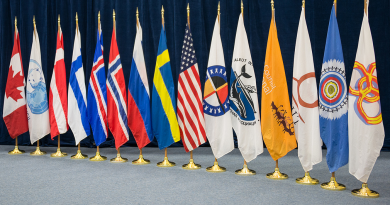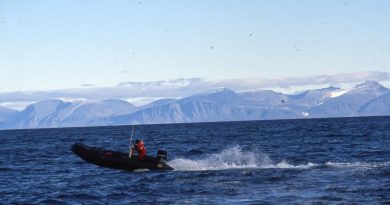Big uptake of COVID-19 emergency benefit program in Northern Canada’s territories

A large number of people in the N.W.T. and Nunavut have tapped into a federal program meant to provide emergency help for people who have lost their job or been laid off due to COVID-19.
According to the latest statistics from the federal government, 27,790 people in the three territories have received the Canada Emergency Response Benefit for one month or more. The benefit provides applicants with $500 per week for up to six months to replace earnings lost as a result of COVID-19 shutdowns.
In an effort to get it to people as quickly as possible, the federal government does not require applicants to verify they have been laid off or have lost their job due to COVID-19. To start receiving the benefit, all they need do is answer a few questions on the phone or online. Applications must be renewed each month. As of June 28, people across the country have received a total of $53.5 billion in CERB payments.
The Canadian Taxpayers Federation wants to see the rules around CERB payments tightened up. Federal director Aaron Wudrick said the federation understood that, initially, the government had to move quickly to ensure people who had lost their jobs due to COVID-19 could buy food and pay their bills.
Wudrick says the CERB is now an incentive for some people to stay at home instead of returning to work.
“We’re months in now, and … the government has not really tightened it up. It’s not only expensive, it undermines the recovery at this point.”
Because of the size of the program, even a small amount of fraudulent claims amount to a huge expense.
N.W.T. and Nunavut CERB numbers at odds with employment numbers
According to federal statistics, the number of unique applicants from the north is at odds with employment numbers in two of the three territories.
For example in January, before there were any COVID-19 restrictions, 13,800 people were employed in Nunavut, according to Statistics Canada. Since CERB was introduced in March, 8,800 Nunavummiut, or 63 per cent of the number of people working in January, have collected the benefit. Yet in Nunavut, more than half of working people are employed by government and have not suffered any loss of employment income.
Similarly in the N.W.T., 20,400 people were working in January. More than half of that number, or 10,640 people, have collected CERB payments. According to the N.W.T. Bureau of Statistics, just over 47 per cent of people working in the N.W.T. work in the public sector, where there have been no layoffs.
If only people who are eligible for the benefit are collecting it, the numbers mean that every private sector employee in the N.W.T. has collected CERB payments. In Nunavut, everyone who works in the private sector, plus approximately 1,800 more people, would have collected CERB payments.
In Yukon, CERB recipients amount to only 39 per cent of the number of people employed in that territory just before the COVID-19 shutdowns. That’s more in line with the uptake in provinces such as Alberta (42 per cent), B.C. (43 per cent) and Ontario (43 per cent).
In an email, CBC asked the federal government how it intends to recoup CERB payments that have been fraudulently claimed. The government has yet to respond.
Related stories from around the North:
Canada: Canadian Northwest Territories ends state of emergency for 1st time during COVID-19 pandemic, CBC News
Finland: Russian tourists eager to book holidays in Finland despite border closure, Yle News
Greenland: Greenland extends COVID-19 entry requirements until July 20, Eye on the Arctic
Iceland: Iceland revises COVID-19 border screening rules for citizens, residents, Eye on the Arctic
Norway: Norwegian Arctic wilderness tourism hit particularly hard by coronavirus, The Independent Barents Observer
Russia: The city that builds Russia’s nuclear submarines now has more than 2,000 COVID-19 cases, The Independent Barents Observer
Sweden: Sweden’s top epidemiologist admits he got COVID-19 strategy wrong, Radio Sweden
United States: Alaska Highway travellers might be in for rough ride this summer, CBC News



